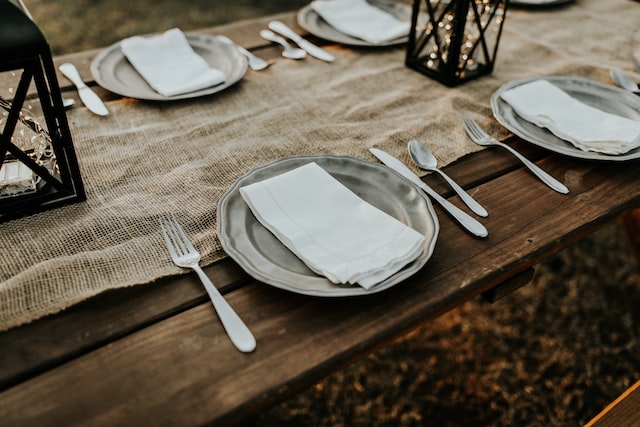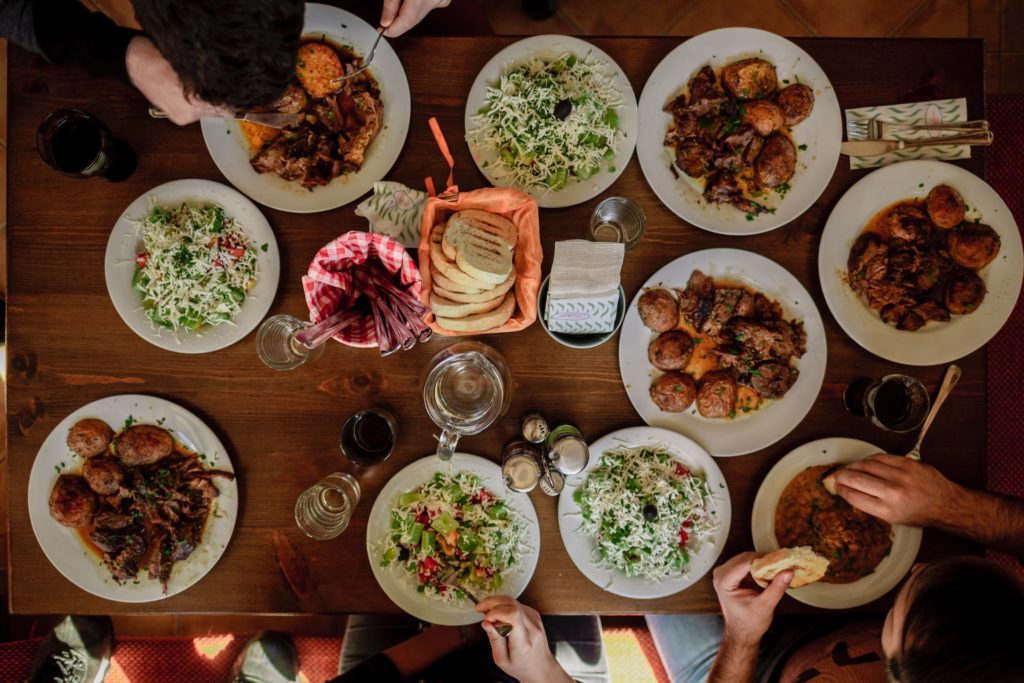8 Tips for Thriving During the Holidays With an Eating Disorder
The holiday season can be a joyful time filled with social gatherings, family traditions, and abundant food. However, for those living with an eating disorder such as anorexia nervosa or bulimia nervosa, it can be a season of increased anxiety. Dinner parties, social pressure, and lack of routine can make it more difficult to manage your mental health and eating disorder. If you are experiencing an eating disorder, this food-focused season might seem daunting. But remember: there are tools to help you cope and enjoy this potentially challenging season. Here are eight tips for thriving during the holidays.
1. Develop a Plan
Before the holiday season begins, it is important to communicate with your care team about the upcoming seasonal challenges. With a plan in place, you will find yourself able to cope and adapt if a situation begins to feel triggering. According to Kerry Fannon, a registered dietitian and founder of Namaste Nourished, LLC, one key to success is creating manageable and realistic goals prior to holiday celebrations. Be sure to reach out to your treatment team to develop goals that align with your treatment plan and ultimately prioritize your recovery. Scheduled check-ins with your care team or a member of your support system may be essential to your success during the flurry of holiday plans.
When talking to your dietitian or therapist, define what feels feasible to cope with at this point in your recovery journey. Perhaps some kinds of events or gatherings seem unapproachable at this time. Instead of agreeing to attend all holiday-related events, pace yourself and find what seems manageable to you. Remember that you and your recovery are your priorities this season!
2. Set Intentions
Setting an intention prior to food-centered holiday gatherings can be a helpful tool in managing your eating disorder. Mental health and eating disorders go hand in hand, so finding ways to address anxiety with tools like intention-setting can help you better manage your eating disorder. Anxiety can play a role in confusing our physiological feelings of hunger and fullness. Setting a mealtime intention can help you manage that anxiety and thus allow you to better sense what your body truly feels.
An intention might be something as simple as acknowledging where your food came from, gratitude for the holiday gathering, or appreciation for who you are sharing your holiday meal with. Utilizing a consistent mealtime intention can assist you in finding stability during the holidays. If you feel overwhelmed as you navigate new settings and food habits during the holidays, remember your intention and Kerry Fannon’s helpful mantra: “one step and one meal at a time.”
3. Intentional Alcohol and Drugs
For many people experiencing eating disorders, many social and food-related situations may be triggering. Working with your care team and communicating with loved ones prior to the holidays can give you a toolbox of coping skills to help reduce these triggers and make the holiday events more manageable.
However, consuming alcohol or drugs during holiday gatherings may make it hard to tap into your toolbox and prioritize your recovery. It can be easy to turn to intoxicants when social situations are stressful or food-related gatherings feel overwhelming, but consuming alcohol or drugs can increase your anxiety and impact decision-making, which may in turn impede your ability to manage your eating disorder. Consider establishing healthy boundaries around alcohol prior to holiday events. Communicate these boundaries with your family and friends and encourage them to join you in enjoying festive non-alcoholic drinks. Classic holiday cocktails can easily be transformed into merry mocktails, allowing you to maintain your boundaries while participating in holiday celebrations.
4. Turn to Your Support System
It’s important to remember that when dealing with an eating disorder, you are never alone. Your care team, trusted family members, and loyal friends are all present to help you on your path to recovery. This group of trusted professionals and loved ones is especially important during the stressful holiday season. Before the holidays are in full swing, Kerry Fannon advises talking with your treatment team about any hesitations you may have about reaching out to your support network. You can work with them to find ways to ease into conversation with loved ones who wish to support you. It may also prove helpful to identify one person at your holiday gathering that you can turn to if triggers arise. Talk with this person before the holidays and help them understand your needs. Remember, you are not alone!
5. Remember Self-compassion
Coping with an eating disorder, such as anorexia nervosa or bulimia nervosa, can be unimaginably challenging. You may set goals that are hard to reach or find yourself in a setback. Recovery is not linear; rather every step you take, forward and back, is part of your journey to recovery. It is important to give yourself the grace you deserve, especially during the stress of the holiday season.
If you begin to feel anxious or overwhelmed during a holiday gathering, check your self-talk. Are you being kind to yourself? Are you acknowledging your successes? If not, try to reroute those negative thoughts to even a single positive affirmation for yourself.
Also, recall your pre-holiday plans. If your goals were unachievable or difficult to manage, it may be hard to feel self-compassion if you miss the mark. Be sure to create goals and plans that work well with your current point in recovery and allow you to continue your path to recovery.
Lastly, take moments to forgive yourself. Everyone makes mistakes and your mistakes do not dictate the outcome of your eating disorder. Use past mistakes to inspire better experiences for the future.
6. Assess Any New Year’s Resolutions
It’s that time of year again when we all put on our party hats and make promises about next year. New Year’s resolutions can be an empowering tool but they can also be a setback to those with eating disorders. Many resolutions revolve around body image, weight, exercise, and food. These kinds of goals can be counterproductive to the recovery plan you and your care team have in place for you. If you do wish to make a New Year’s resolution, be sure that it is realistic and is coming from a place of self-compassion. Consider resolutions regarding self-care, reaching out to loved ones, or other practices that support you in your eating disorder recovery. If resolutions are a trigger for you, communicate this to the friends and family you celebrate the holidays with. Your support network can help you navigate these challenging topics that often arise during the holiday season.
7. Practice Self-care
Self-care is an essential part of recovery from an eating disorder, and it is especially important during the stress of the holidays. Practicing mindfulness has shown promising results in eating disorder recovery. Self-care differs for everyone. It may include activities that soothe you, such as quiet time away from holiday hubbub, waking up early with a cup of tea, or journaling. Self-care can also encompass scheduling and attending meetings with your healthcare provider or reaching out to one of your support people. Consistency is also key. Find ways to maintain your routine, especially as it relates to food. Be sure to incorporate adequate self-care into your holiday plan. If unexpected stressors arise, you will have the tools you need to cope and decompress.
8. Center the holiday spirit
The holiday season is a time for celebration. That might be difficult to remember if you’re living with an eating disorder, but it’s important to focus on the reason you gather with friends and family. Perhaps the food-related activities are overwhelming for you; instead, focus on the joy of socializing with family, enjoying a snowy afternoon, or festive decorating. You deserve to feel the warmth and excitement of the holiday season so find a component of the holiday that you connect with and follow that connection into the heart of the celebration.


